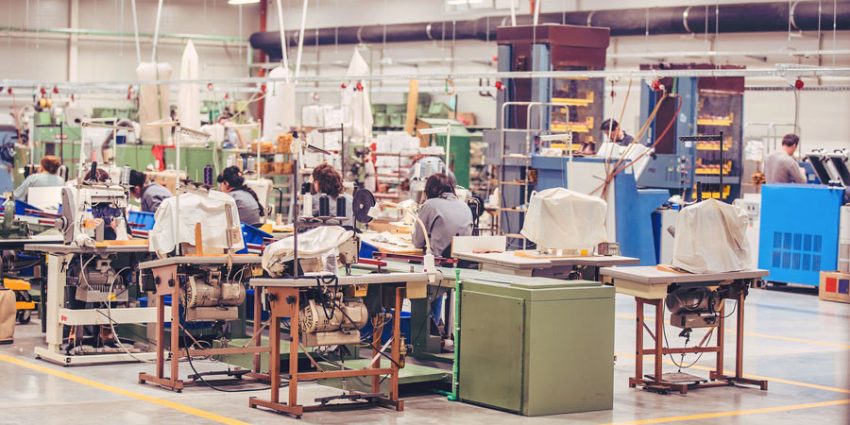In the hustle and bustle of industrial operations, the quality of tools often becomes a make-or-break factor. High-quality industrial tools aren’t just about getting the job done—they’re about doing it better, faster, and safer. Investing in superior craftsmanship has a ripple effect on productivity, efficiency, and safety. So, let’s dive into why splurging on top-notch tools can be one of the smartest moves for any industrial setup.
Durability and Reliability
First off, let’s talk durability. High-quality tools, crafted from superior materials, stand the test of time. They’re built to endure the daily grind, the wear and tear that cheaper alternatives simply can’t handle. Think about it—how many times have you had to replace a subpar tool after just a few uses? Investing in robust, well-crafted tools saves you from this repetitive hassle. There are countless examples of durable tools that have withstood rigorous use over time, proving their worth in industries where reliability is non-negotiable.
Precision and Performance
Next up, precision. Superior craftsmanship means tighter tolerances and better performance. In industries where a fraction of a millimeter can make a world of difference, having precise tools is invaluable. Take manufacturing, for instance. Precision tools ensure that parts fit together perfectly, reducing errors and waste. The result? Smoother operations, higher quality products, and happier clients. It’s no wonder that professionals who rely on precision, from machinists to carpenters, swear by high-quality tools.
Cost Savings and Return on Investment (ROI)
Now, let’s get to the dollars and cents. While high-quality tools might come with a steeper upfront cost, they pay for themselves over time. How? Through reduced maintenance costs, fewer replacements, and increased productivity. Imagine not having to pause work to fix or replace a broken tool. That’s time and money saved right there. Case studies show that the ROI on quality tools is significantly higher than their cheaper counterparts. Over the lifespan of the tool, the savings and efficiency gains are substantial, making the initial investment a no-brainer.
Safety and Workplace Efficiency
Safety in the workplace is paramount, and high-quality tools play a crucial role here. Well-crafted tools are designed with user safety in mind, minimizing the risk of accidents. Ergonomic designs, superior materials, and innovative safety features all contribute to a safer work environment. There are numerous stories where investing in quality tools has not only improved workflow but also drastically reduced workplace accidents. In environments where safety can’t be compromised, the value of reliable tools is immeasurable.
Customer Satisfaction and Brand Reputation
For businesses, the tools used aren’t just functional items—they’re a reflection of the brand. High-quality tools can enhance customer satisfaction and bolster brand reputation. When clients see a company investing in top-tier tools, it sends a message of professionalism and commitment to quality. This differentiation can be crucial in a competitive market, helping businesses stand out. Happy customers lead to repeat business and referrals, proving that the right tools can indeed boost the bottom line.
Sustainability and Environmental Impact
In today’s world, sustainability isn’t just a buzzword—it’s a necessity. Well-crafted tools contribute to sustainability efforts by lasting longer and requiring fewer replacements. Additionally, many manufacturers of high-quality tools are adopting eco-friendly materials and processes. This means that investing in superior tools isn’t just good for business—it’s good for the planet. It’s a win-win situation where quality meets responsibility, paving the way for a greener future.
C.S. Osborne’s Commitment to Quality Craftsmanship
A shining example of dedication to quality craftsmanship is C.S. Osborne & Co. Their approach to maintaining high standards is a benchmark in the industry. With rigorous quality control measures and a philosophy centered on excellence, C.S. Osborne ensures consistency in tool performance. Their commitment to blending tradition with innovation highlights the enduring value of quality craftsmanship. It’s this unwavering dedication that sets them apart and keeps them at the top of their game.
Conclusion
Investing in high-quality industrial tools is more than a decision—it’s a strategy. The long-term benefits are clear: durability, precision, cost savings, safety, innovation, customer satisfaction, and sustainability. These factors collectively enhance operational efficiency and ensure that businesses stay competitive and resilient. So, the next time you’re faced with a choice, remember that superior craftsmanship is an investment in the future—one that pays dividends in countless ways. Prioritize quality, and you’ll see the results in every aspect of your work.

